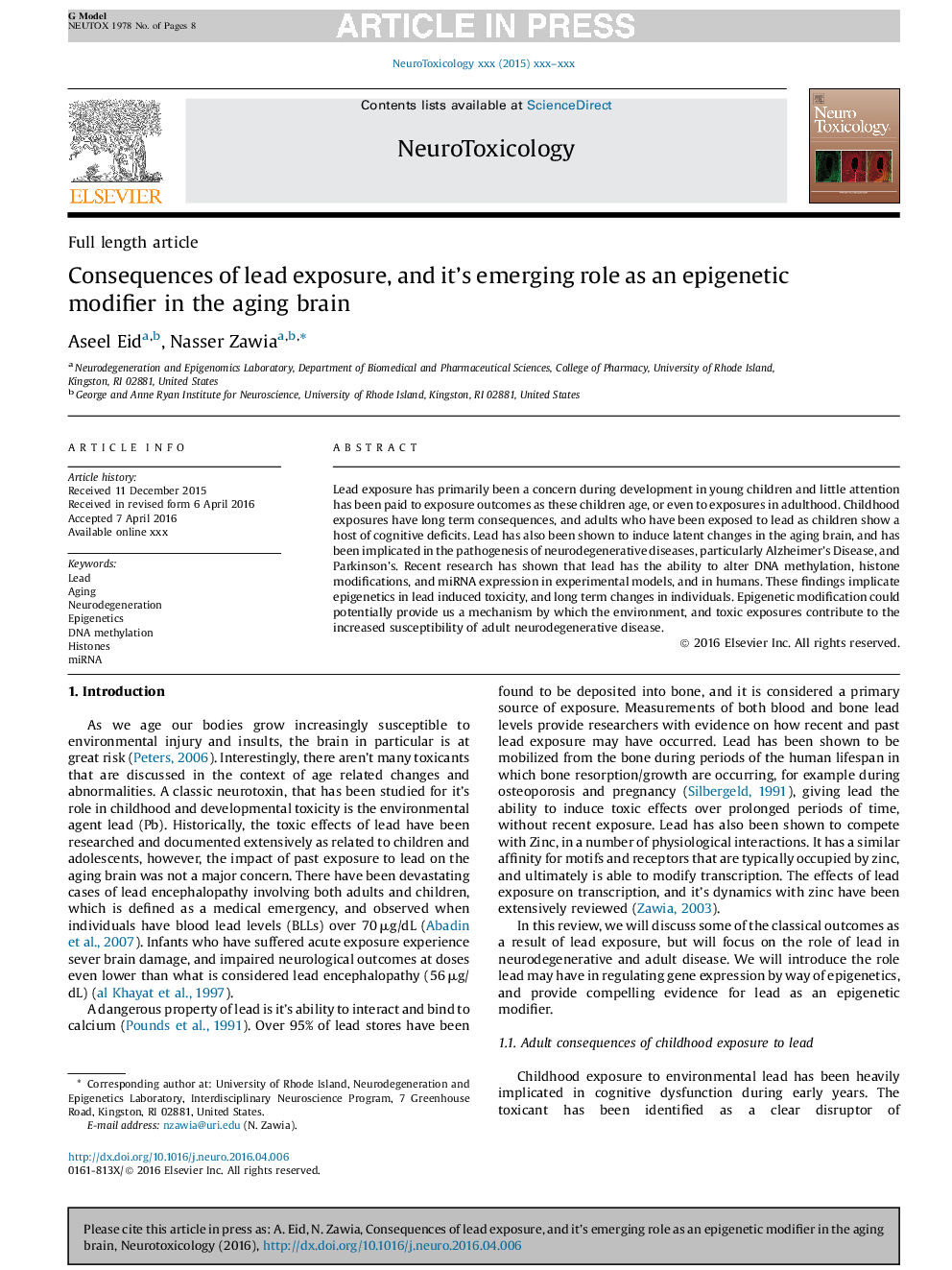| Article ID | Journal | Published Year | Pages | File Type |
|---|---|---|---|---|
| 8550533 | NeuroToxicology | 2016 | 8 Pages |
Abstract
Lead exposure has primarily been a concern during development in young children and little attention has been paid to exposure outcomes as these children age, or even to exposures in adulthood. Childhood exposures have long term consequences, and adults who have been exposed to lead as children show a host of cognitive deficits. Lead has also been shown to induce latent changes in the aging brain, and has been implicated in the pathogenesis of neurodegenerative diseases, particularly Alzheimer's Disease, and Parkinson's. Recent research has shown that lead has the ability to alter DNA methylation, histone modifications, and miRNA expression in experimental models, and in humans. These findings implicate epigenetics in lead induced toxicity, and long term changes in individuals. Epigenetic modification could potentially provide us a mechanism by which the environment, and toxic exposures contribute to the increased susceptibility of adult neurodegenerative disease.
Related Topics
Life Sciences
Environmental Science
Health, Toxicology and Mutagenesis
Authors
Aseel Eid, Nasser Zawia,
